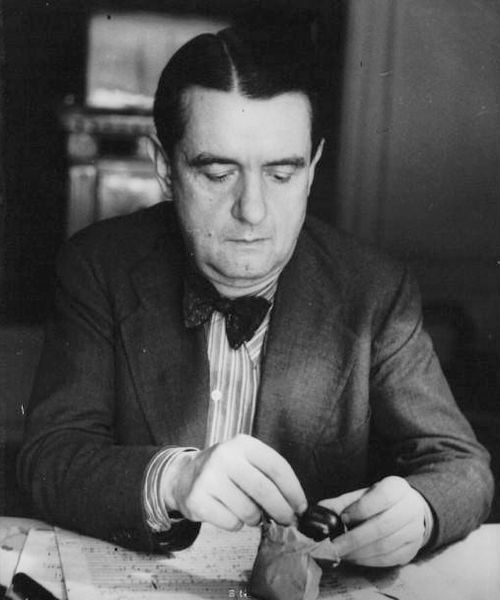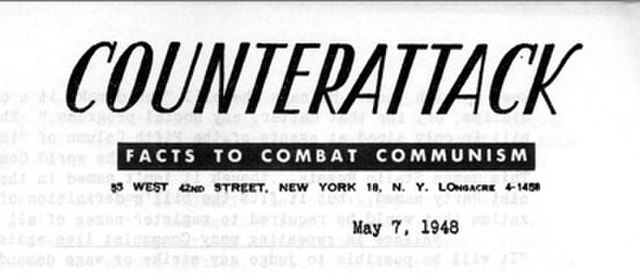Rififi is a 1955 French crime film adaptation of Auguste Le Breton's novel of the same name. Directed by American blacklisted filmmaker Jules Dassin, the film stars Jean Servais as the aging gangster Tony "le Stéphanois", Carl Möhner as Jo "le Suédois", Robert Manuel as Mario Farrati, and Jules Dassin as César "le Milanais". The foursome band together to commit an almost impossible theft, the burglary of an exclusive jewelry shop in the Rue de la Paix. The centerpiece of the film is an intricate half-hour heist scene depicting the crime in detail, shot in near silence, without dialogue or music. The fictional burglary has been mimicked by criminals in actual crimes around the world.
Film poster with original French title
Tony telling the tied-up César "I liked you, Macaroni. But you know the rules" before shooting him for betrayal. This scene was included to echo how Dassin felt after being betrayed by his contemporaries in America.
Composer Georges Auric (pictured) and director Jules Dassin initially disagreed on whether to have music during the heist scene.
Japanese theatrical release poster for Du rififi chez les femmes (1959).
The Hollywood blacklist was an entertainment industry blacklist put in effect in the mid-20th century in the United States during the early years of the Cold War, in Hollywood and elsewhere. Actors, screenwriters, directors, musicians, and other American entertainment professionals were barred from work by the studios.
The May 7, 1948, issue of the Counterattack newsletter warned readers about a radio talk show that had recently expanded its audience by moving from the Mutual network to ABC: "Communist Party members and fellow-travelers have often been guests on [Arthur] Gaeth's program."
The first Hollywood movie to overtly take on McCarthyism, Storm Center was released in 1956. Bette Davis "plays a small-town librarian who refuses, on principle, to remove a book called The Communist Dream from the shelves when the local council deems it subversive".






